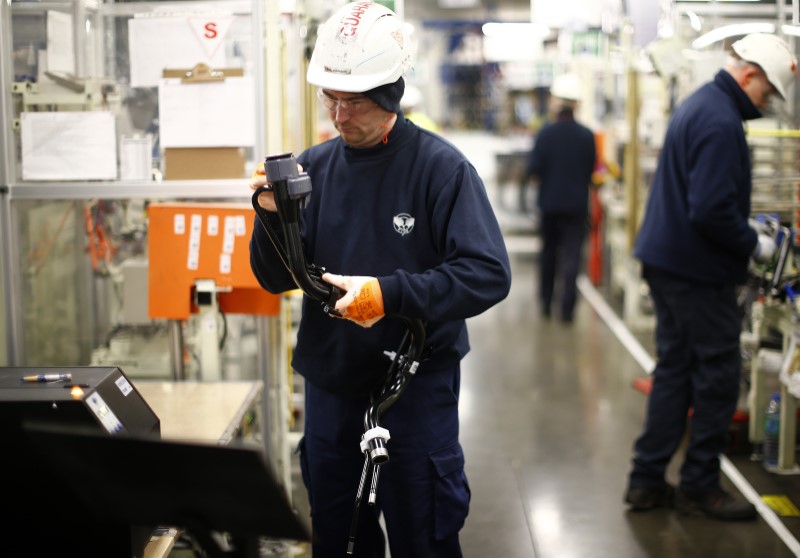Investing.com’s stocks of the week
LONDON (Reuters) - British factories matched a three-decade high for orders this month, a survey showed, adding to signs that manufacturers are riding high even as Britain's Brexit-bound economy remains slow.
Factories have benefited from an economic recovery elsewhere in Europe and beyond, and from the fall in the value of the pound after last year's referendum decision to leave the European Union.
The Confederation of British Industry said on Monday its industrial order book balance remained at +17 in December, its joint highest level since August 1988.
The survey's gauge of export orders edged down to +16 from +20 in November which was its highest level since 1995.
Manufacturing accounts for only 10 percent of Britain's economy.
But the Bank of England hopes exports can soften the hit to overall growth from lower spending by consumers at home who have been pinched by a rise in inflation caused by sterling's fall.
Data published last week showed retail sales in the three months to November recorded the slowest growth in more than four years, despite a bounce last month linked to Black Friday sales promotions.
Howard Archer, an economist with EY Item Club, a forecasting organization, said as well as helping exporters, the weaker pound appeared to have encouraged some firms to switch to domestic sources for supplies.
Samuel Tombs, an economist Pantheon Macroeconomics, a consultancy, said the CBI survey suggested many factories were now running at full capacity.
"The risk, then, is that the UK economy fails to capitalize fully on the recovery in global trade and remains the Group of Seven's laggard next year," he said.
Despite the recent strength in orders, the CBI's gauge of factory output expectations for the next three months remained at +13, its lowest since October 2016, while manufacturers expected their prices would rise at the fastest rate since June.
The survey of 371 manufacturers was conducted between Nov. 22 and Dec. 12.
